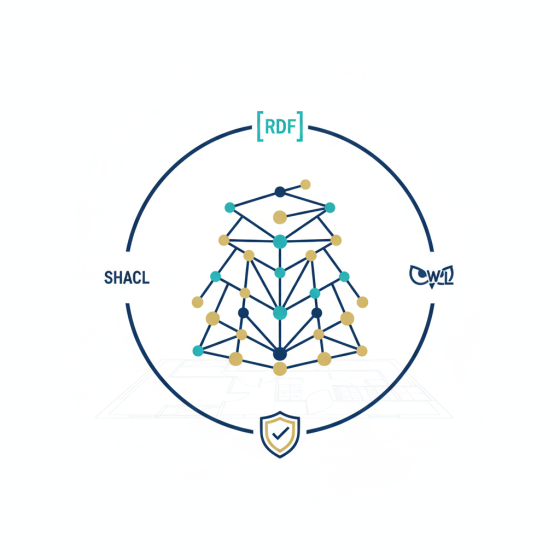Validierung und Testen der Project-Haystack-Ontologie mithilfe etablierter Semantic-Web-Technologien
Validation and Testing Framework for Project Haystack Ontologies Using Standard Semantic Web Technologies
Master thesis
This master’s thesis investigates and bridges the validation gap in Project Haystack, a leading open ontology for building systems. By leveraging Semantic Web technologies like RDF, OWL, and SHACL, it proposes standardized methods and tools to enhance ontology consistency, interoperability, and real-world applicability in industrial building management.
Overview:
Project Haystack is an open ontology for modeling technical systems in buildings. It is already widely used in practice and has been adopted by multiple big players in the industry.
Despite its practical relevance, there remains a significant gap in the validation and testing of both the ontology itself and the models built upon it. Project Haystack has recently introduced the Xeto language to address this issue; however, this approach further reinforces vendor lock-in within Haystack’s esoteric and isolated ecosystem. This presents challenges for industrial and professional users, such as limited extensibility, incomplete implementations, and a reliance on non-standard or niche programming languages.
The goal of this master’s thesis is to analyze, document, and bridge this validation gap by proposing and implementing methods that leverage established Semantic Web technologies (e.g., RDF, OWL, SHACL) and standard programming tools (e.g., Python).
Objectives:
1. Evaluate the current validation and testing capabilities within Project Haystack.
2. Identify inconsistencies, ambiguities, and modeling issues in the Project Haystack ontology and its RDF representations.
3. Determine whether these issues stem from the original ontology definitions or from the conversion to RDF.
4. Propose solutions and best practices to improve ontology consistency and interoperability—either through revisions to the ontology or improved conversion mechanisms.
5. Design and implement tools for ontology validation and testing.
6. Develop additional tools for validating models built upon the ontology.
Methods and Technologies:
- Semantic Web Standards: RDF, OWL, SHACL, SPARQL
- Data Formats: JSON
- Programming Environment: Python
Practical Relevance:
This work is closely linked to real-world industrial applications such as advanced building control, optimization, fault detection, and diagnostics.An industry partner will provide real-world test data, including Project Haystack-based models of buildings and campus systems, for evaluation and validation.
Supervisor
Jens Wala, M.Sc.
Prerequisites
Interest in engineering informatics and digital transformation of facility management
Start
As of now





